China Insight
“What’s Modernisation?” – Chinese State Media Explain China’s ‘New Era’ With a Rap
No three-and-a-half-hour speech, but a three-and-a-half minute video explains China’s new strategies in this latest propaganda clip on social media.
Published
7 years agoon
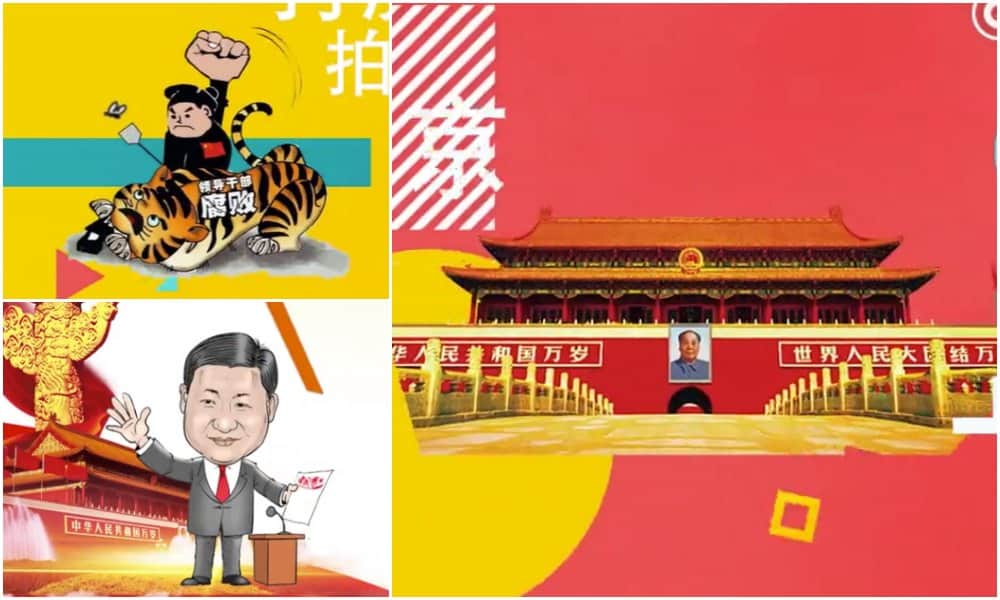
No three-and-a-half-hour speech, but a three-and-a-half minute video – Chinese state media explain China’s new strategies through catchy rap music and trendy graphics.
The much-anticipated 19th Party Congress opened last Wednesday in Beijing with Xi Jinping’s three-and-a-half-hour speech on “Thoughts on Socialism with Chinese Characteristics for a New Era” (新时代中国特色社会主义思想), which presented the Party’s new concepts, thoughts and strategies – with Xi himself at its core.
Shi-jiu-da (十九大, ‘big 19’) is the popular abbreviation for the 19th Congress of the Communist Party of China. This Plenum is held once every five years and is the highest level political meeting in the Chinese calendar. The meeting is also a big topic on Chinese social media; the Weibo hashtag for the ‘big 19’ event #十九大# was viewed over 3,6 billion times on Friday.
As with previous major political gatherings, speeches and rhetoric are not the only means by which the Party and state media seek to convey their message to the wider population. A video titled “What is modernization? Let us tell you in a rap!” (“现代化”是什么化?一段嘻哈告诉你!) is the latest in a series produced by state broadcaster CCTV. The video is being spread through social media.
The clip (click link or see embedded video below), that lays out the government’s stategies for China’s ‘new era’ through rap music with bright graphics, was widely distributed on Chinese social media this week by various media platforms and institutions, from the Economic Observer (@经济观察报) to the Ministry of Public Security.
The translation of the video’s full text* is as follows:
Let’s go!
This October in Beijing
…will all be arriving!
The time has come for 十九大(shi-jiu-da)
Listen out for the important voices
十九大 (shi-jiu-da) let’s say a little about it
There is a lot of information here
So, listen out carefully and I’ll speak slowly
In the past, China has always advanced courageously
As we have said before,
When difficult problems are solved then great things can be established!
Our nation is full of vigor and vitality!
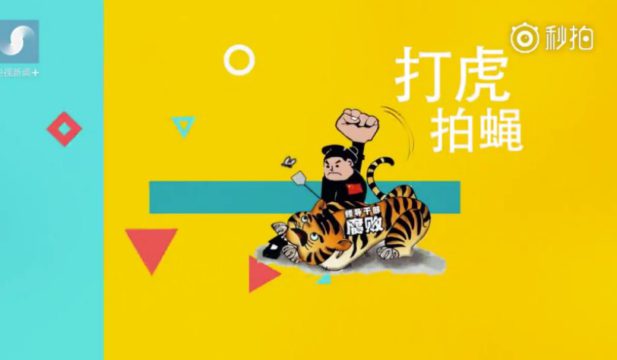
Anti-corruption efforts are strong
Many tigers have been taken down
From rocket lift-offs to submarine exercises,
Technology is changing our lives
Haha, Haha, Haha,
As I’m going to show up next, we have plans going forward…
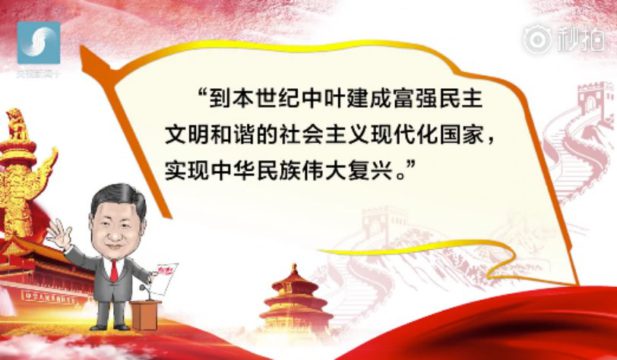
[Xi Jinping’s voice speaking:]
By the time we reach the middle period of this century, we will have built a modern socialist state which is rich and powerful, democratic, civilised, and harmonious. In this way, we will have realized the great rejuvenation of the Chinese people.
[Rap continues:]
But, building in accordance with the needs of modernization
What even is modernization?
Let me tell you:
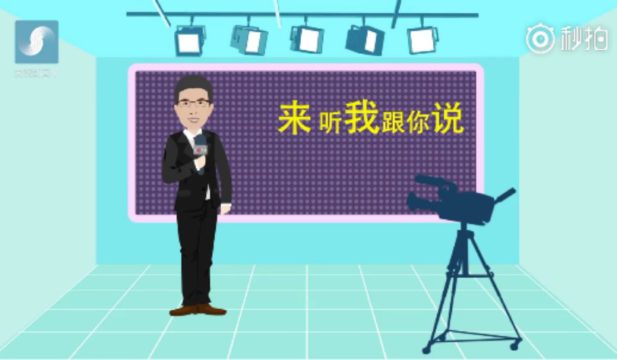
[End of rap, start of explanation by lecturer:]
100 years ago, Sun Yat-sen set out a blueprint for modernization in ‘Strategy for Building a Nation’: build train tracks, repair the roads, construct large ports. At that time, this was still considered fantastical and unrealistic.
But today, train lines criss-cross the whole nation! They run N-S between Beijing-Guangdong-Shanghai, as well as across the well-trodden route of Lanzhou-Chengdu-Chongqing. The length of the journey on the bullet trains just keeps reducing!
Again, at the time the People’s Republic was founded, not even a tractor could be built! Thus, building a modern, industrial socialist nation became our aim.

In 1954, the first National People’s Congress was held. This was the first time the aim of achieving the Four Modernizations was clearly referenced. In just the next few years, factory after factory was built, including those of Anshan Steel works and Changchun car manufacturers.
Our workers are powerful!

This was a song I would listen to when I was young, and hearing it I would know my dad would soon finish work for the day and so I would quickly pack away all my marbles. Entering the period of opening and reform, Deng Xiaoping named the Four Modernizations as the way to ‘Chinese Modernization’, as well as wanting to become a middle-income nation.
In the 1970s, when people married, the three major durable consumer goods were still watches, bicycles and sewing machines. In the 80s, this became fridges, color TVs, and washing machines, and by the 90s changed again into air conditioning, cameras, and camcorders.
[Xi Jinping’s voice:]
Now, information technologies such as the internet are changing with each passing day. This is leading a new revolution in society and bringing new dimensions into human lives.
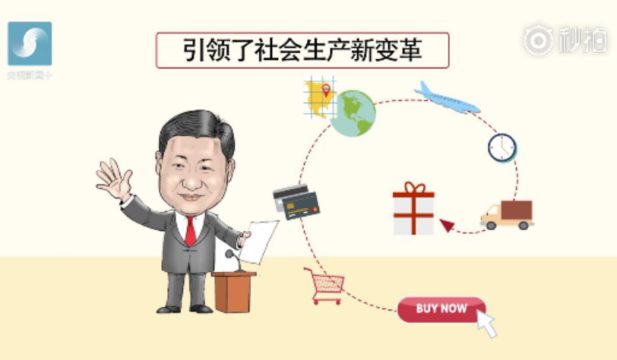
[Presenter continues:]
A report from the 18th Party Congress, published on 8th November 2012, mentioned the ‘4 New Modernisations.’ This has led to the implementation of an innovation-driven development strategy. Over the last 5 years, the major technological developments we have made have accumulated further and further. The computing in the Sunway Taihu Light is the most advanced in the world.
The quantum satellite Mozi Hao is unparalleled. The Tiangong 2 satellite has been sent off smoothly. Each of these wondrous engineering projects is a feat of its own! What a country!
In 2013, General Secretary Xi Jinping then added one more modernization into the fold, that being to ‘continue to advance the nation’s governing system, and to modernize our governing capabilities.’
Modernisation as a whole is very impressive. Frankly speaking, only this modernization of the inner qualities of officials and organizations will enable them to govern the country and change the civilized norms.We don’t take a break from modernization!
[Rap continues:]
Yeah, now that we have become a middle-class society
We have reached the most important section of our reform agenda
What are the issues that affect the lives of the middle class?
At this stage in the development of Socialism with Chinese Characteristics,
People are heading in the direction of a better life
The Party must remember
This is a new beginning!
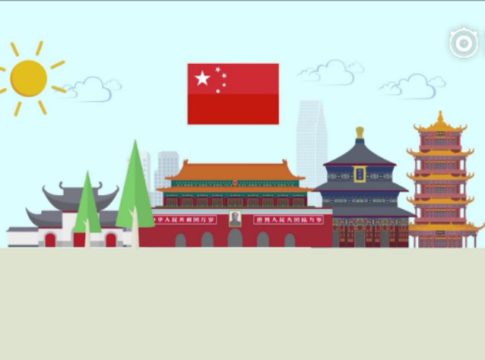
In what direction is the bullet train heading?
After 200 years, will the Chinese dream have been realized?
What expectations do Chinese families have for their future?
Will the 十九大 (shi-jiu-da) answer these questions for you?
Of course!
Both the design and the genre of the new clip show some resemblance to clips launched during the Belt and Road Summit earlier this year.
On Weibo, a platform that is heavily controlled during the 19th National Congress, the video was shared hundreds of times. Although discussions on the video are limited due to current restrictions, one surprised netizen just posted: “Can I actually comment on this?!”
By Alice Mingay
Follow @whatsonweibo
* Full Text:
Let’s go!
在十月里的北京
。。。。都到这里 (3-4)
十九大要来了
听听到重要的声音
十九大,说点嘛?
这里信息有点多
你听我慢慢说
过去砥砺奋进
也我们互相说过
难提解决大事办成
祖国朝气蓬勃
反腐力度很大
打掉的老虎很多
胖五升空,蛟龙下水
科技改变生活
哈哈,哈哈,哈哈
接下来,我们还有个目标
[习近平的声音:]
到本世纪中叶建成富强民主
文明和谐的社会主义现代化国家,
实现中华民族伟大复兴。
–中共中烟总书记、国家主席、中央军委主席习近平
建设现代化
那现代化是什么?
来,听我跟你说
百年前,孙中山在[建国方略]里描绘了现代化的蓝图
建铁路、修公路、建造水平大海港
这些的当时,还被认为是‘空想’
而如今,京广、京沪穿南北
兰渝铁路通蜀道
复兴号路途时间再修短
再说,新中国刚成立时
一台拖拉机都不能造
建成社会主义现代化工业国就是我们的目标
1954年,第一届全国人民代表大会
第一次明确提出要实现四个现代化
随后的几年里,鞍山无缝钢管厂、长春第一汽车制造厂一个厂接一个厂
咱们工人有力量
‘咱们工人有力量’
小时候一听到这首歌就知道爸爸要下班了,赶紧把玻璃球收起来
迈入改革开放新时期,邓小平把实现四个现代化的目标称为‘中国式的现代化’,也就是‘小康之家’。
70年代,人们结婚, ‘三大件’还是手表自行车缝纫机
80年代,冰箱、彩电、洗衣机
90年代变成空调、音像、录像机
现在以互联网为代表的信息技术日新月异
引领了社会生产新变革
创造了人类生活新空间
2012年11月8号的中共十八大报告提出了 ‘新四化’
实施创新驱动发展战略
这五年,祖国的科技发展硕果累累
超级计算机“神威-太湖之光”世界第一
量子卫星‘墨子号’世界独一无二
‘天宫二号’顺利发射
奇迹工程一个个,厉害了,我的国
2013年习近平总书记又给这新四化加了一化
不断推进国家治理体系和治理能力现代化
整个现代化,有点厉害了
说白了,就是国家机构官员素质的现代化是治理国家变得文明规范
建设现代化,我们不放假
Yeah, 如今全面建成小康社会
到最关键的议程
小康心内还是什么事关你我的生活
中国特色社会主义进行的发展阶段
人民群众向往的美好生活
党中要记得
这是一个新的起点
复兴号驶向哪儿?
两个一百年后,中国梦实现了吗?
对于祖国家庭未来,还有那些期待?
来过这十九大,还为你来解答?
必须的
Edited by Manya Koetse
Spotted a mistake or want to add something? Please let us know in comments below or email us.
©2017 Whatsonweibo. All rights reserved. Do not reproduce our content without permission – you can contact us at info@whatsonweibo.com.
Alice Mingay is a final year undergraduate Chinese Studies at the University of Oxford. She has spent over a year in Beijing and has a particular interest in Chinese Internet and Chinese Law. She is currently researching the development of China’s e-courts.

Also Read
China Insight
The Tragic Story of “Fat Cat”: How a Chinese Gamer’s Suicide Went Viral
The story of ‘Fat Cat’ has become a hot topic in China, sparking widespread sympathy and discussions online.
Published
3 months agoon
May 9, 2024
The tragic story behind the recent suicide of a 21-year-old Chinese gamer nicknamed ‘Fat Cat’ has become a major topic of discussion on Chinese social media, touching upon broader societal issues from unfair gender dynamics to businesses taking advantage of grieving internet users.
The story of a 21-year-old Chinese gamer from Hunan who committed suicide has gone completely viral on Weibo and beyond this week, generating many discussions.
In late April of this year, the young man nicknamed ‘Fat Cat’ (胖猫 Pàng Māo, literally fat or chubby cat), tragically ended his life by jumping into the river near the Chongqing Yangtze River Bridge (重庆长江大桥) following a breakup with his girlfriend. By now, the incident has come to be known as the “Fat Cat Jumping Into the River Incident” (胖猫跳江事件).
News of his suicide soon made its rounds on the internet, and some bloggers started looking into what was behind the story. The man’s sister also spoke out through online channels, and numerous chat records between the young man and his girlfriend emerged online.
One aspect of his story that gained traction in early May is the revelation that the man had invested all his resources into the relationship. Allegedly, he made significant financial sacrifices, giving his girlfriend over 510,000 RMB (approximately 71,000 USD) throughout their relationship, in a time frame of two years.
When his girlfriend ended the relationship, despite all of his efforts, he was devastated and took his own life.
The story was picked up by various Chinese media outlets, and prominent social and political commentator Hu Xijin also wrote a post about Fat Cat, stating the sad story had made him tear up.
As the news spread, it sparked a multitude of hashtags on Weibo, with thousands of netizens pouring out their thoughts and emotions in response to the story.
Playing Games for Love
The main part of this story that is triggering online discussions is how ‘Fat Cat,’ a young man who possessed virtually nothing, managed to provide his girlfriend, who was six years older, with such a significant amount of money – and why he was willing to sacrifice so much in order to do so.
The young man reportedly was able to make money by playing video games, specifically by being a so-called ‘booster’ by playing with others and helping them get to a higher level in multiplayer online battle games.
According to his sister, he started working as a ‘professional’ video gamer as a means of generating money to satisfy his girlfriend, who allegedly always demanded more.
He registered a total of 36 accounts to receive orders to play online games, making 20 yuan per game (about $2.80). Because this consumed all of his time, he barely went out anymore and his social life was dead.
In order to save more money, he tried to keep his own expenses as low as possible, and would only get takeout food for himself for no more than 10 yuan ($1,4). His online avatar was an image of a cat saying “I don’t want to eat vegetables, I want to eat McDonald’s.”

The woman in question who he made so many sacrifices for is named Tan Zhu (谭竹), and she soon became the topic of public scrutiny. In one screenshot of a chat conversation between Tan and her boyfriend that leaked online, she claimed she needed money for various things. The two had agreed to get married later in this year.
Despite of this, she still broke up with him, driving him to jump off the bridge after transferring his remaining 66,000 RMB (9135 USD) to Tan Zhu.
As the story fermented online, Tan Zhu also shared her side of the story. She claimed that she had met ‘Fat Cat’ over two years ago through online gaming and had started a long distance relationship with him. They had actually only met up twice before he moved to Chongqing. She emphasized that financial gain was never a motivating factor in their relationship.
Tan additionally asserted that she had previously repaid 130,000 RMB (18,000 USD) to him and that they had reached a settlement agreement shortly before his tragic death.
Ordering Take-Out to Mourn Fat Cat
– “I hope you rest in peace.”
– “Little fat cat, I hope you’ll be less foolish in your next life.”
– “In your next life, love yourself first.”
These are just a few of the messages left by netizens on notes attached to takeout food deliveries near the Chongqing Yangtze River Bridge.

AI-generated image spread on Chinese social media in connection to the event.
As Fat Cat’s story stirred up significant online discussion, with many expressing sympathy for the young man who rarely indulged in spending on food and drinks, some internet users took the step of ordering McDonalds and other food delivery services to the bridge, where he tragically jumped from, in his honor.
This soon snowballed into more people ordering food and drinks to the bridge, resulting in a constant flow of delivery staff and a pile-up of take-out bags.

Delivery food on the bridge, photo via Weibo.
However, as the food delivery efforts picked up pace, it came to light that some of the deliveries ordered and paid for were either empty or contained something different; certain restaurants, aware of the collective effort to honor the young man, deliberately left the food boxes empty or substituted sodas or tea with tap water.

At least five restaurants were caught not delivering the actual orders. Chinese bubble tea shop ChaPanda was exposed for substituting water for milk tea in their cups. On May 3rd, ChaPanda responded that they had fired the responsible employee.
Another store, the Zhu Xiaoxiao Luosifen (朱小小螺蛳粉), responded on that they had temporarily closed the shop in question to deal with the issue. Chinese fast food chain NewYobo (牛约堡) also acknowledged that at least twenty orders they received were incomplete.
Fast food company Wallace (华莱士) responded to the controversy by stating they had dismissed the employees involved. Mixue Ice Cream & Tea (蜜雪冰城) issued an apology and temporarily closed one of their stores implicated in delivering empty orders.
In the midst of all the controversy, Fat Cat’s sister asked internet users to refrain from ordering take-out food as a means of mourning and honoring her brother.
Nevertheless, take-out food and flowers continued to accumulate near the bridge, prompting local authorities to think of ways of how to deal with this unique method of honoring the deceased gamer.
Gamer Boy Meets Girl
On Chinese social media, this story has also become a topic of debate in the context of gender dynamics and social inequality.
There are some male bloggers who are angry with Tan Zhu, suggesting her behaviour is an example of everything that’s supposedly “wrong” with Chinese women in this day and age.
Others place blame on Fat Cat for believing that he could buy love and maintain a relationship through financial means. This irked some feminist bloggers, who see it as a chauvinistic attitude towards women.
A main, recurring idea in these discussions is that young Chinese men such as Fat Cat, who are at the low end of the social ladder, are actually particularly vulnerable in a fiercely competitive society. Here, a gender imbalance and surplus of unmarried men make it easier for women to potentially exploit those desperate for companionship.
The story of Fat Cat brings back memories of ‘Mo Cha Official,’ a not-so-famous blogger who gained posthumous fame in 2021 when details of his unhappy life surfaced online.
Likewise, the tragic tale of WePhone founder Su Xiangmao (苏享茂) resurfaces. In 2017, the 37-year-old IT entrepreneur from Beijing took his own life, leaving behind a note alleging blackmail by his 29-year-old ex-wife, who demanded 10 million RMB (±1.5 million USD) (read story).
Another aspect of this viral story that is mentioned by netizens is how it gained so much attention during the Chinese May holidays, coinciding with the tragic news of the southern China highway collapse in Guangdong. That major incident resulted in the deaths of at least 48 people, and triggered questions over road safety and flawed construction designs. Some speculate that the prominence given to the Fat Cat story on trending topic lists may have been a deliberate attempt to divert attention away from this incident.
‘Fat Cat’ was cremated. His family stated their intention to take necessary legal steps to recover the money from his former girlfriend, but Tan Zhu reportedly already reached an agreement with the father and settled the case. Nevertheless, the case continues to generate discussions online, with some people wondering: “Is it over yet? Can we talk about something different now?”

Fat Cat images projected in Times Square
However, given that images of the ‘Fat Cat’ avatar have even appeared in Times Square in New York by now (Chinese internet users projected it on one of the big LED screens), it’s likely that this story will be remembered and talked about for some time to come.
UPDATE MAY 25
On May 20, local authorities issued a lengthy report to clarify the timeline of events and details surrounding the death of “Fat Cat,” which had attracted significant attention across China.
The report concluded that there was no fraud involved and that “Fat Cat” and his girlfriend were in a genuine relationship. Tan did not deceive “Fat Cat” for money; the transfers were voluntary. Furthermore, Tan returned most of the money to his parents.
The gamer’s sister is reportedly still being investigated for potentially infringing on Tan’s privacy by disclosing numerous private details to the public.
In the end, one thing is clear in this gamer’s tragic story, which is that there are no winners.
By Manya Koetse
– With contributions by Miranda Barnes and Ruixin Zhang
Independently reporting China trends for over a decade. Like what we do? Support us and get the story behind the hashtag by subscribing:
Spotted a mistake or want to add something? Please let us know in comments below or email us. First-time commenters, please be patient – we will have to manually approve your comment before it appears.
©2024 Whatsonweibo. All rights reserved. Do not reproduce our content without permission – you can contact us at info@whatsonweibo.com.
China Brands, Marketing & Consumers
A Brew of Controversy: Lu Xun and LELECHA’s ‘Smoky’ Oolong Tea
Chinese tea brand LELECHA faced backlash for using the iconic literary figure Lu Xun to promote their “Smoky Oolong” milk tea, sparking controversy over the exploitation of his legacy.
Published
3 months agoon
May 3, 2024
It seemed like such a good idea. For this year’s World Book Day, Chinese tea brand LELECHA (乐乐茶) put a spotlight on Lu Xun (鲁迅, 1881-1936), one of the most celebrated Chinese authors the 20th century and turned him into the the ‘brand ambassador’ of their special new “Smoky Oolong” (烟腔乌龙) milk tea.
LELECHA is a Chinese chain specializing in new-style tea beverages, including bubble tea and fruit tea. It debuted in Shanghai in 2016, and since then, it has expanded rapidly, opening dozens of new stores not only in Shanghai but also in other major cities across China.
Starting on April 23, not only did the LELECHA ‘Smoky Oolong” paper cups feature Lu Xun’s portrait, but also other promotional materials by LELECHA, such as menus and paper bags, accompanied by the slogan: “Old Smoky Oolong, New Youth” (“老烟腔,新青年”). The marketing campaign was a joint collaboration between LELECHA and publishing house Yilin Press.

Lu Xun featured on LELECHA products, image via Netease.
The slogan “Old Smoky Oolong, New Youth” is a play on the Chinese magazine ‘New Youth’ or ‘La Jeunesse’ (新青年), the influential literary magazine in which Lu’s famous short story, “Diary of a Madman,” was published in 1918.
The design of the tea featuring Lu Xun’s image, its colors, and painting style also pay homage to the era in which Lu Xun rose to prominence.
Lu Xun (pen name of Zhou Shuren) was a leading figure within China’s May Fourth Movement. The May Fourth Movement (1915-24) is also referred to as the Chinese Enlightenment or the Chinese Renaissance. It was the cultural revolution brought about by the political demonstrations on the fourth of May 1919 when citizens and students in Beijing paraded the streets to protest decisions made at the post-World War I Versailles Conference and called for the destruction of traditional culture[1].
In this historical context, Lu Xun emerged as a significant cultural figure, renowned for his critical and enlightened perspectives on Chinese society.
To this day, Lu Xun remains a highly respected figure. In the post-Mao era, some critics felt that Lu Xun was actually revered a bit too much, and called for efforts to ‘demystify’ him. In 1979, for example, writer Mao Dun called for a halt to the movement to turn Lu Xun into “a god-like figure”[2].
Perhaps LELECHA’s marketing team figured they could not go wrong by creating a milk tea product around China’s beloved Lu Xun. But for various reasons, the marketing campaign backfired, landing LELECHA in hot water. The topic went trending on Chinese social media, where many criticized the tea company.
Commodification of ‘Marxist’ Lu Xun
The first issue with LELECHA’s Lu Xun campaign is a legal one. It seems the tea chain used Lu Xun’s portrait without permission. Zhou Lingfei, Lu Xun’s great-grandson and president of the Lu Xun Cultural Foundation, quickly demanded an end to the unauthorized use of Lu Xun’s image on tea cups and other merchandise. He even hired a law firm to take legal action against the campaign.
Others noted that the image of Lu Xun that was used by LELECHA resembled a famous painting of Lu Xun by Yang Zhiguang (杨之光), potentially also infringing on Yang’s copyright.
But there are more reasons why people online are upset about the Lu Xun x LELECHA marketing campaign. One is how the use of the word “smoky” is seen as disrespectful towards Lu Xun. Lu Xun was known for his heavy smoking, which ultimately contributed to his early death.
It’s also ironic that Lu Xun, widely seen as a Marxist, is being used as a ‘brand ambassador’ for a commercial tea brand. This exploits Lu Xun’s image for profit, turning his legacy into a commodity with the ‘smoky oolong’ tea and related merchandise.
“Such blatant commercialization of Lu Xun, is there no bottom limit anymore?”, one Weibo user wrote. Another person commented: “If Lu Xun were still alive and knew he had become a tool for capitalists to make money, he’d probably scold you in an article. ”
On April 29, LELECHA finally issued an apology to Lu Xun’s relatives and the Lu Xun Cultural Foundation for neglecting the legal aspects of their marketing campaign. They claimed it was meant to promote reading among China’s youth. All Lu Xun materials have now been removed from LELECHA’s stores.

Statement by LELECHA.
On Chinese social media, where the hot tea became a hot potato, opinions on the issue are divided. While many netizens think it is unacceptable to infringe on Lu Xun’s portrait rights like that, there are others who appreciate the merchandise.
The LELECHA controversy is similar to another issue that went trending in late 2023, when the well-known Chinese tea chain HeyTea (喜茶) collaborated with the Jingdezhen Ceramics Museum to release a special ‘Buddha’s Happiness’ (佛喜) latte tea series adorned with Buddha images on the cups, along with other merchandise such as stickers and magnets. The series featured three customized “Buddha’s Happiness” cups modeled on the “Speechless Bodhisattva” (无语菩萨), which soon became popular among netizens.

The HeyTea Buddha latte series, including merchandise, was pulled from shelves just three days after its launch.
However, the ‘Buddha’s Happiness’ success came to an abrupt halt when the Ethnic and Religious Affairs Bureau of Shenzhen intervened, citing regulations that prohibit commercial promotion of religion. HeyTea wasted no time challenging the objections made by the Bureau and promptly removed the tea series and all related merchandise from its stores, just three days after its initial launch.
Following the Happy Buddha and Lu Xun milk tea controversies, Chinese tea brands are bound to be more careful in the future when it comes to their collaborative marketing campaigns and whether or not they’re crossing any boundaries.
Some people couldn’t care less if they don’t launch another campaign at all. One Weibo user wrote: “Every day there’s a new collaboration here, another one there, but I’d just prefer a simple cup of tea.”
By Manya Koetse
[1]Schoppa, Keith. 2000. The Columbia Guide to Modern Chinese History. New York: Columbia UP, 159.
[2]Zhong, Xueping. 2010. “Who Is Afraid Of Lu Xun? The Politics Of ‘Debates About Lu Xun’ (鲁迅论争lu Xun Lun Zheng) And The Question Of His Legacy In Post-Revolution China.” In Culture and Social Transformations in Reform Era China, 257–284, 262.
Independently reporting China trends for over a decade. Like what we do? Support us and get the story behind the hashtag by subscribing:
Spotted a mistake or want to add something? Please let us know in comments below or email us. First-time commenters, please be patient – we will have to manually approve your comment before it appears.
©2024 Whatsonweibo. All rights reserved. Do not reproduce our content without permission – you can contact us at info@whatsonweibo.com.
Subscribe

Weibo Watch: The Future is Here

“Bye Bye Biden”: Biden’s Many Nicknames in Chinese

Enjoying the ‘Sea’ in Beijing’s Ditan Park

A Triumph for “Comrade Trump”: Chinese Social Media Reactions to Trump Rally Shooting

Weibo Watch: Get Up, Stand Up

The Tragic Story of “Fat Cat”: How a Chinese Gamer’s Suicide Went Viral

“Old Bull Eating Young Grass”: 86-Year-Old Chinese Painter Fan Zeng Marries 36-Year-Old Xu Meng

A Brew of Controversy: Lu Xun and LELECHA’s ‘Smoky’ Oolong Tea

Singing Competition or Patriotic Fight? Hunan TV’s ‘Singer 2024’ Stirs Nationalistic Sentiments

Zara Dress Goes Viral in China for Resemblance to Haidilao Apron

Weibo Watch: The Battle for the Bottom Bed

About the “AI Chatbot Based on Xi Jinping” Story

China’s Intensified Social Media Propaganda: “Taiwan Must Return to Motherland”

Weibo Watch: Telling China’s Stories Wrong

Saying Goodbye to “Uncle Wang”: Wang Wenbin Becomes Chinese Ambassador to Cambodia
Get in touch
Would you like to become a contributor, or do you have any tips or suggestions? Get in touch here!
Popular Reads
-

 China Insight3 months ago
China Insight3 months agoThe Tragic Story of “Fat Cat”: How a Chinese Gamer’s Suicide Went Viral
-

 China Music4 months ago
China Music4 months agoThe Chinese Viral TikTok Song Explained (No, It’s Not About Samsung)
-

 China Digital10 months ago
China Digital10 months agoToo Sexy for Weibo? Online Discussions on the Concept of ‘Cābiān’
-

 China Arts & Entertainment12 months ago
China Arts & Entertainment12 months agoBehind 8 Billion Streams: Who is Dao Lang Cursing in the Chinese Hit Song ‘Luocha Kingdom’?




